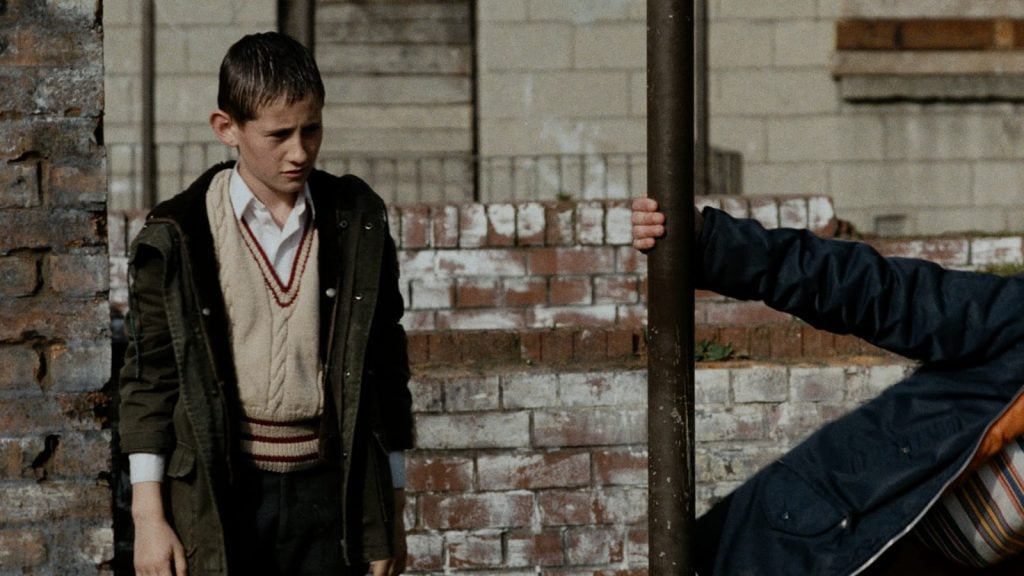While not quite as prolific as some of her contemporaries, Scottish auteur Lynne Ramsay has made some of the most evocative works to hit cinemas in her two-plus decades of filmmaking. In the past decade alone, We Need To Talk About Kevin and You Were Never Really Here dealt with themes of death, trauma and guilt in ways that seared themselves into your brain. Yet, if only we were to return to her earliest work we would see that these topics are not unique in her artistic output. After a series of award-winning short films in the mid-1990s, Ramsay made her transition to feature films with her powerful 1999 debut Ratcatcher. Ramsay was born and raised in Glasgow, and it was her experiences within her working-class family that inspired her to craft a tale that was distinctly from a Scottish perspective. The country had long been represented by outsiders as a picture-perfect fantasy land, but those who lived there had rarely seen an accurate representation of themselves on screen. Even at the turn of the century in 1999, Ramsay was only the second Scottish woman to make a feature, and she made an immense impression with the effort.
From the opening moments of Ratcatcher, Ramsay asserts herself as a filmmaker with a poetic soul when it comes to visuals. A close-up on a young boy reveals the playful innocence that one achieves when they are young and crafting a world out of what they have available to them in their immediate surroundings. This young boy just wants to play, but his mother is firm in her plans to take the boy to see his father. Tragically, this is not the boy who we are to follow for the remainder of the film; this is Ryan Quinn. When he sneaks away from his mother to continue his playful day with his friend, he is accidentally pushed to his death in a canal. The only person who presumably witnessed this was twelve-year-old James (William Eadie), a boy now steeped in trauma and guilt from inaction who keeps such thoughts a complete secret from his family. The event rocks the community, but they soon move on leaving the aimless James to wrestle with his own feelings in various ways. It is the early 1970s and he lives in a slum tenement with his parents (Tommy Flanagan and Mandy Matthews) and two sisters. His strained environment is not an oasis away from the pain of the world.
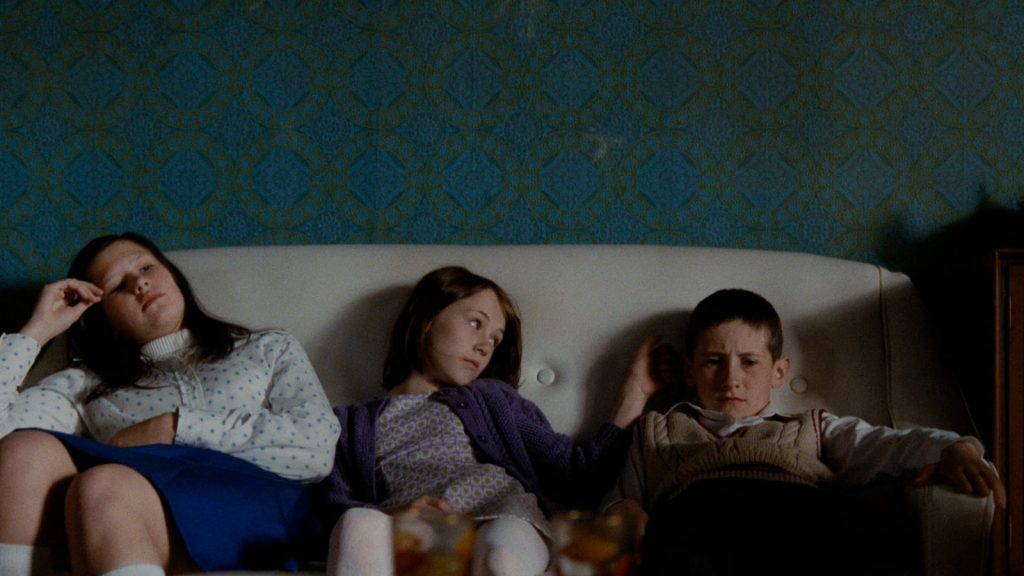
Ramsay carefully constructs a visual motif through the economic hardships plaguing the community. The city is in the midst of a redevelopment program intended to tear down the grimy slums that make up the city while re-housing them in more modern estates. We see what a toll it takes on the spirit of those living in these areas, as young James eagerly awaits news of a better life only to get disappointed time and time again by the delay. To make matters worse, the garbage workers have gone on strike leaving a sea of trash bags lining the streets for ruffians to tear open for a brief diversion and rats to thrive within. There is not a firm A-to-B plot within this narrative outside bleak vignettes of James existing in his environment. He does not have any friends, but he does have boys who occasionally bring him along to get into trouble. He establishes a bond with the slightly older Margaret Anne (Leanne Mullen), who herself has a pretty miserable life as a warm body for the neighborhood boys. There’s also the simple Kenny (John Miller), a lover of animals who may hold more secrets than he lets on. He has a push-pull dynamic with James that unfolds nicely.
Ramsay capably explores what it feels like to be young and adrift in a world in which you have no control. No role was more essential to the success of this film than that of James, and in a sense the discovery of Eadie feels like a gift from the world. James is such an internal character for the most part; he verbalizes some of his immediate frustrations to his parents and he bickers with his siblings, but he feels much more than that which leads to him beating trash bags with sticks and generally searching for something better. One of the more transcendent moments of the film is when James does catch a bus and rides it out of the city until the end of the line. The unfinished neighborhood he explores is not ready for habitation, but in comparison to the slums he knows filled with trash, this community feels like an oasis in the desert. Ramsay tempts you with these warm visions, but you are never quite sure if you are guaranteed anything resembling a happy ending. The ending is one that is left open to interpretation, and it is guaranteed to stick with you for a while.
Ratcatcher feels more mature than you might expect from a debut feature. At just over 90 minutes, this movie rarely exhibits any signs of fat and the momentum is propulsive despite some dreamy elements. The way in which she blends first-time performers and professionals is seamless; it is no easy task to get youth performers to a natural place and Ramsay does not get in her own way once she does. Ramsay is a confident presence behind the camera, and the beautiful, artistic eye she brings to otherwise unsightly material does not go unnoticed. The journey may not always be easy, but Ratcatcher is a film that lulls you into its deliberate rhythms and leaves you reeling at the end.
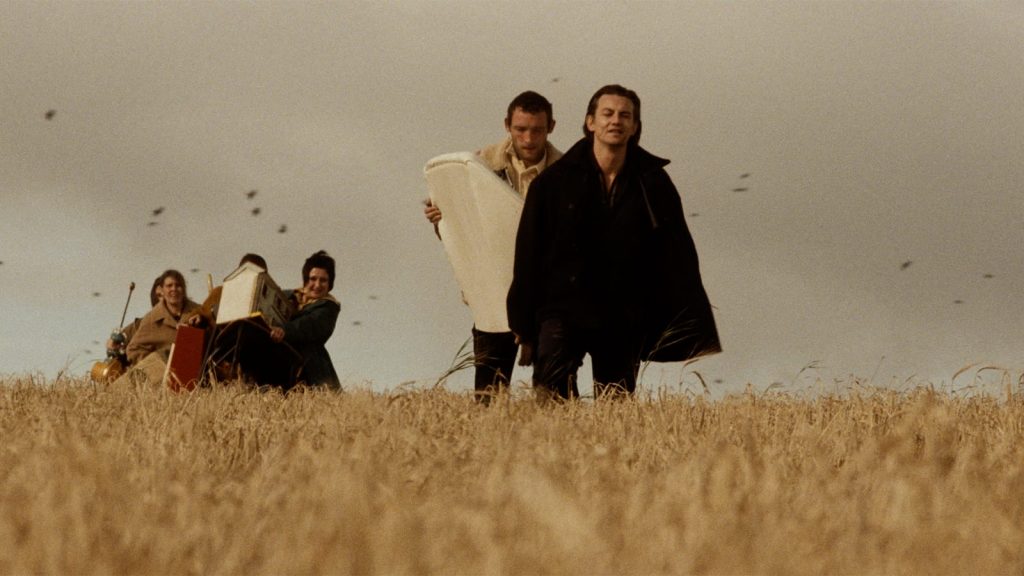
Video Quality
Ratcatcher has been granted a 4K restoration from the original camera negative supervised by director Lynne Ramsay and cinematographer Alwin Küchler via the Criterion Collection for this stunning new Blu-Ray disc in its original 1.85:1. The film grain present is beautifully natural and consistent while allowing fine details to shine through. Facial features are detailed with fine lines, grime and pores detectable alongside natural skin tones. Colors are vibrant without being unnatural for the environment, such as the fields of gold outside of town. The general aesthetic of the movie is dull and bleak, but the transfer affords several opportunities for colors to pop off the screen at specific points. Black levels are deep and inky without any noticeable blocking or compression artifacts. Subtle details stand out with greater clarity than ever before, especially in clothing or elements of the production design. Exploring these locations with this new transfer almost makes it feel like a whole new film. This is by far the best the film has looked on home entertainment.
Audio Quality
The Blu-Ray disc comes with a DTS-HD 2.0 Master Audio track that accurately captures the intended sound of the film. The main thing to take note of is the nearly impenetrable Scottish accents that run throughout the film necessitating the use of the optional subtitles for most. The only slight knock against the provided subtitles is the inability to view a version without the environmental notes (*door creaks*, etc). The score from Rachel Portman is used well to establish the mood of the story, and this track handles it elegantly throughout the duration of the film along with some preexisting music. There is never a moment where it threatens to overwhelm competing sounds, and it maintains a good balance so that dialogue comes through clearly. The suburban environmental sounds are rendered well alongside everything else. There does not seem to be any majorly noticeable instances of age-related wear and tear. The Criterion Collection has given this film a perfectly preserved audio presentation that brings the movie to life in a most pleasing manner.
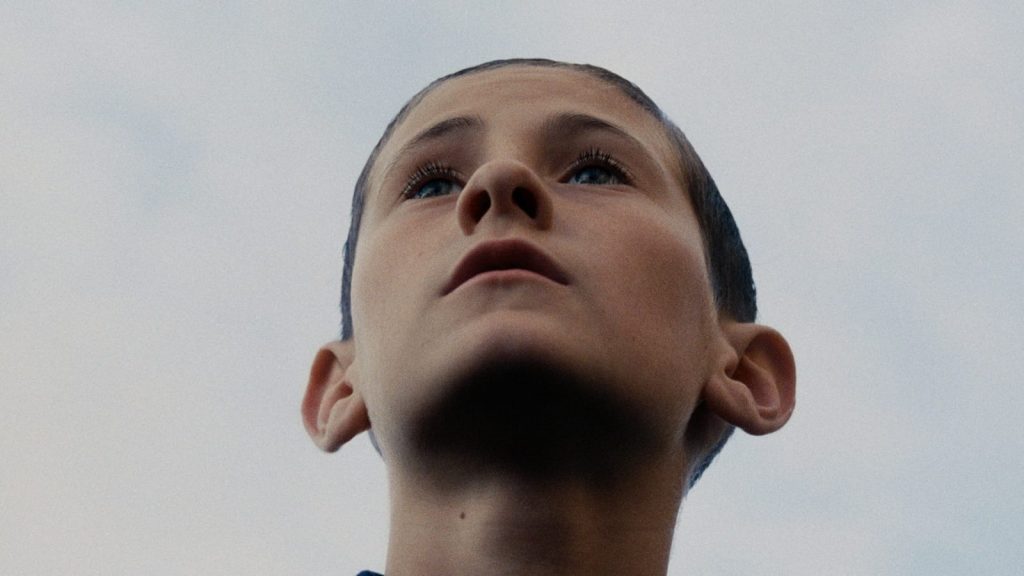
Special Features
The Criterion Blu-Ray of Ratcatcher includes a foldout booklet featuring the new essay “A Flashlight Cinema” by professor and author Girish Shambu in which he discusses the career of Lynne Ramsay, the balance of poetry and narrative, the themes and cultural relevance of the picture and much more. This provides a great amount of context and insight into the film that is so worthwhile. The on-disc special features are as follows:
- Lynne Ramsay
-
- 2002: A 22-minute vintage interview with Ramsay in which she discusses her love of still photography, her journey in film school, her early short films, the process of writing Ratcatcher and what she wanted to accomplish with this story, balancing control with spontaneity, her love of utilizing sound and music in her work, working with the young performers, the characterization of the parents and much more that provides lovely insight into the project.
-
- 2021: A new 21-minute interview with Ramsay in which she discusses the rough shooting experiences of her debut feature, the way in which she continues to learn while shooting, her early inspirations, what she drew from her upbringing, the enthusiasm from the young performers that propelled her during the toughest moments, different interpretations of the film and more.
- Short Films
-
- Small Deaths: The 11-minute 1995 short film from Ramsay that served as her graduation film and won the Jury Prize for a short film at the Cannes Film Festival is presented here in HD. This piece shows three events in a young girl’s life that slowly chips away at her innocence. This is a moody gut punch.
-
- Kill The Day: The 18-minute 1996 short film from Ramsay that won the Jury Prize for a short film at the Clermont-Ferrand Film Festival is presented here in HD. This piece shows the world through the life of an addict.
-
- Gasman: The 15-minute 1997 short film from Ramsay that won the Jury Prize for a short film at the Cannes Film Festival is presented here in HD. This piece is set at Christmas and features a young girl named Lynne who goes to a Christmas party with her dad and brother, but not everything seems just right to her.
- Alwin Küchler: A 66-minute episode of the audio podcast First Film First in which host/cinematographer Christopher Ross talks to fellow cinematographer Alwin Küchler about his early experiences working with Lynne Ramsay and his memories of Ratcatcher specifically. This entire thing is full of interesting tidbits that will appeal to both aspiring filmmakers and cinema fans equally.
- Trailer: The minute-and-a-half trailer is provided here.
Final Thoughts
Ratcatcher is as strong of a feature debut as a filmmaker could want, and after knowing Lynne Ramsay for so long it comes as no surprise she was capable of this. This coming-of-age tale is not the saccharine kind that appeals to mainstream audiences, nor is it the type of alienating misery-porn that certain arthouse audiences might expect. It is authentic in its themes and execution with a transfixing narrative and knockout performances from the ensemble. The Criterion Collection has released a Blu-Ray featuring a top-tier A/V presentation and a lovely selection of special features. If you are a fan of the film or Ramsay in general, this release is not to be missed. Recommended
The Criterion Collection edition of Ratcatcher is available to purchase on Blu-Ray and DVD.
Note: Images presented in this review are not reflective of the image quality of the Blu-Ray.
Disclaimer: The Criterion Collection has supplied a copy of this disc free of charge for review purposes. All opinions in this review are the honest reactions of the author.
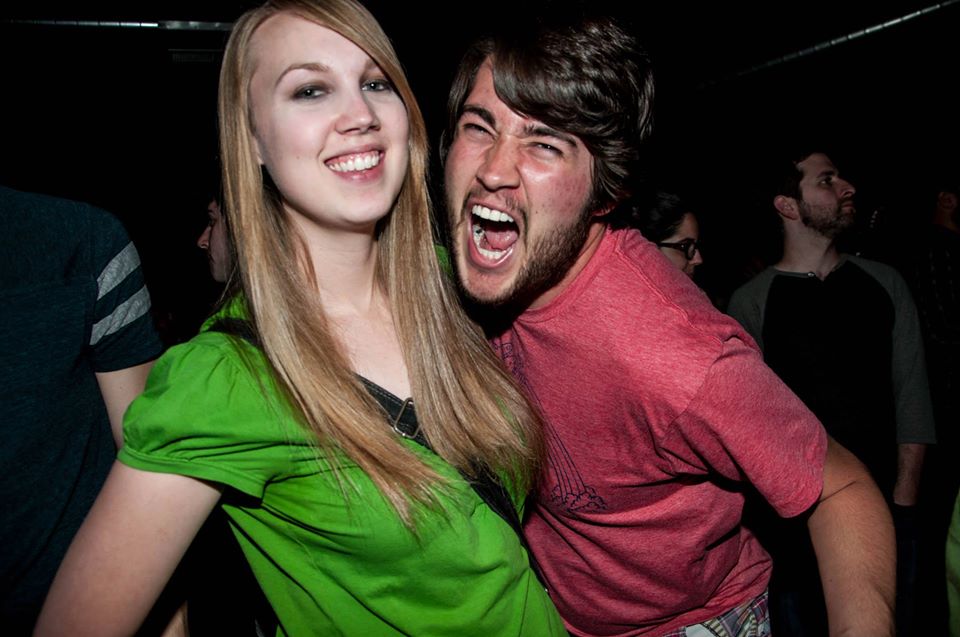
Dillon is most comfortable sitting around in a theatre all day watching both big budget and independent movies.


